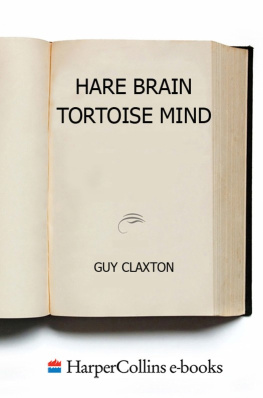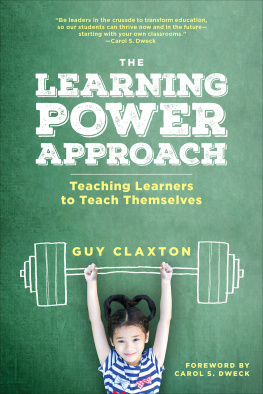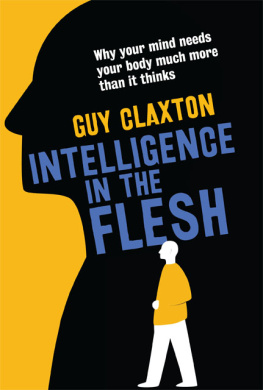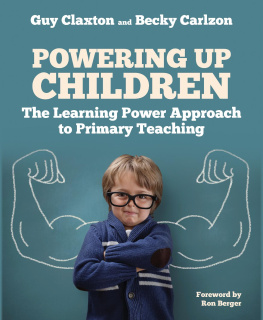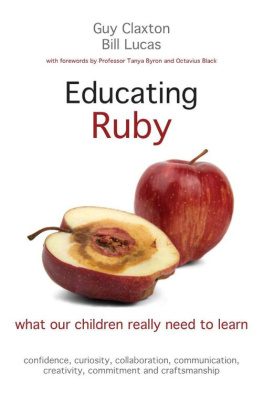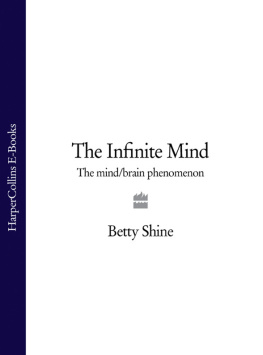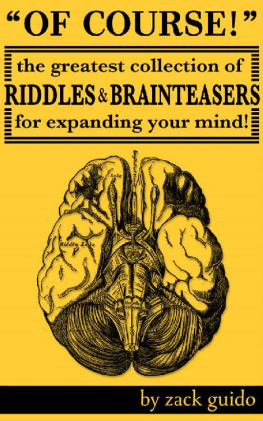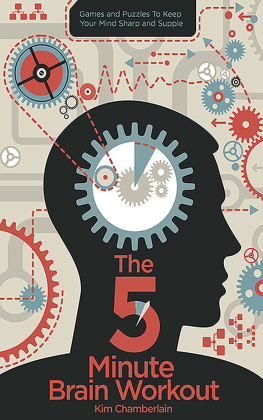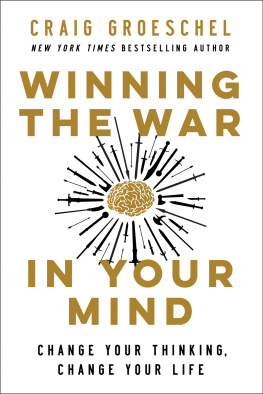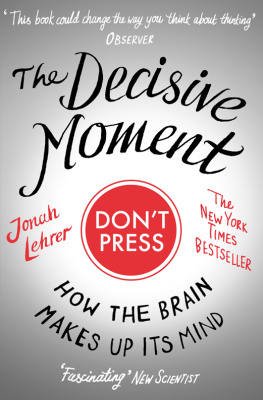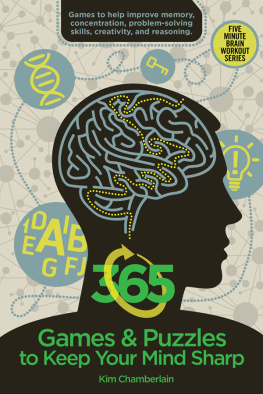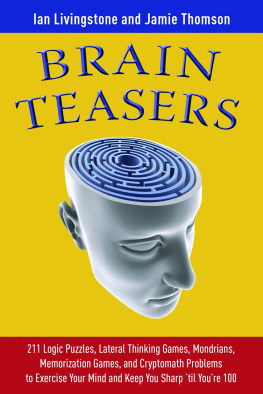For Jo
Everything is gestation and bringing forth. To let each impression and each germ of a feeling come to completion wholly in itself, in the dark, in the inexpressible, the unconscious, beyond the reach of ones own intelligence, and await with deep humility and patience the birth-hour of a new clarity: that alone is living the artists life. Being an artist means not reckoning and counting, but ripening like the tree which does not force its sap, and stands confident in the storms of spring without the fear that after them may come no summer. It does come. But it comes only to the patient, who are there as though eternity lay before them, so unconcernedly still and wide.
Rainer Maria Rilke
Contents
Guide
There are many people who have supported, encouraged and guided me throughout the long gestation of this book, and to whom thanks are due. They include Stephen Batchelor (for duck dinners), Mark Brown (for his enthusiasm), Merophie Carr, Polly Carr, Isabelle Gall, Rod Jenkinson (who wanted it to be The Sin of Certainty), Kikan Massara, Helen and Colin Moore (for their room), and my mother, Ruby Claxton (for her love and for not interrupting). Among those who offered me scholarly advice and generously shared their time and knowledge were Peter Abbs, Maurice Ash, Brian Bates, Susan Blackmore, Alan Bleakley, Laurinda Brown, Fritjof Capra, Martin Conway, Peter Fenwick, Brian Goodwin, Susan Greenfield, Valerie Hall, Jane Henry, Tony Marcel, Richard Morris, Brian Nicholson, Dick Passingham, Mark Price, Robin Skynner, John Teasdale, Francisco Varela, Max Velmans and Larry Weiskrantz. Special thanks to Margaret Carr for wonderful conversations, and to her and her husband Malcolm for their friendship, and the use, yet again, of their muse-filled beach-house in Raglan, New Zealand. Michelle Macdonald, Steven Smith and Christopher Titmuss helped me to practise the art of thinking slowly. And Christopher Potter and Emma Rhind-Tutt of Fourth Estate believed in the book enough to chivvy me into improving it. Emmas love of language and her persistent refusal to let me get away with sloppiness of mind or prose helped enormously to shape the book for the better. Such inaccuracies and infelicities as remain are, of course, down to me.
I am grateful to the following authors and publishers for permission to reproduce quotations and illustrations.
Academic Press Inc., and Professor Patricia Bowers (executor of the estate of the late Professor Kenneth S. Bowers), for two panels from figure 2, p83 in Intuition in the context of discovery, by K.S. Bowers, G. Regehr, C. Balthazard and K. Parker, reprinted with kind permission from Cognitive Psychology, vol 22, pp72110, 1990 Academic Press.
American Psychological Association and Professor]. Schooler for illustrations from the appendix (p182) to J.W. Schooler, S. Ohlsson and K. Brooks (1993) Thoughts beyond words: when language overshadows insight, Journal of Experimental Psychology: General, vol 122, pp 166183; 1993 by the American Psychological Association. Reprinted with permission.
The British Psychological Society for extracts from the report Fostering Innovation: A Psychological Perspective by M.A. West, C. Fletcher and J. Toplis, March 1994.
Cambridge University Press for extracts from A.E. Housman, The Name and Nature of Poetry.
Elsevier Science Ltd for the extract from How does cognitive therapy prevent depressive relapse and why should attentional control (mindfulness) training help? by John Teasdale, Zindel Segal and Marie Williams, reprinted from Behavior Research and Therapy, 1995, vol 33, pp2539. 1995, with kind permission from Elsevier Science Ltd, The Boulevard, Langford Lane, Kidlington, 0X5 1GB, UK.
Faber and Faber Ltd. for the extract from Ted Hughes, Poetry in the Making, published by Faber and Faber Ltd., London 1967. Ted Hughes 1967, reprinted with kind permission.
HarperCollins Publishers for extracts from Discourse on Thinking, translated by John M. Anderson and E. Hans Freund by Martin Heidegger. Copyright 1959 by Verlag Gunther Neske. Copyright in the English Translation by Harper & Row, Publishers Inc. Reprinted by permission of HarperCollins Publishers, Inc. Excerpts from Womens Ways of Knowing by Mary Field Belenky et al. Copyright 1986 by Basic Books, Inc. Reprinted by permission of BasicBooks, a division of HarperCollins Publishers, Inc.
The MIT Press for the extract from P.S. Churchland. Neuropkilosophy, MIT Press, Cambridge, MA. 1986 Patricia S. Churchland.
Oxford University Press for the extract from Arthur Reber, Implicit Learning and Tacit Knowledge: An Essay on the Cognitive Unconscious, OUP, Oxford, 1993.
Princeton University Press for the extract from D.T. Suzuki, Zen and Japanese Culture, Princeton University Press, 1959; and for the extract from J. Hademard, The Psychology of Invention in the Mathematical Field, Princeton University Press, 1945.
Random House Inc. for the excerpt from F. Scott Fitzgerald, Tender is the Night, published by The Bodley Head; and for the excerpts from Tom Peters, The Pursuit of Wow!, published by Vintage Books.
Scientific American Inc., New York, for permission to reproduce the schematic representation of a neuron first published in The chemistry of the brain by Leslie L. Iversen, in Scientific American, September, 1979, and later in The Brain: A Scientific American Book.
Simon and Schuster Inc. for the extract from Richard Selzer, Mortal Lessons, 1974, 1975, 1976.
John Wiley and Sons Ltd. for the extract from Nicholas Humphrey, in discussion of Chapter by John Kihlstrom, in CIBA Symposium 174, Experimental and Theoretical Studies of Consciousness, Wiley, Chichester, 1993.
Turtle buries its thoughts, like its eggs, in the sand, and allows the sun to hatch the little ones. Look at the old fable of the tortoise and the hare, and decide for yourself whether or not you would like to align with Turtle.
Native American Medicine Cards
There is an old Polish saying, Sleep faster; we need the pillows, which reminds us that there are some activities which just will not be rushed. They take the time that they take. If you are late for a meeting, you can hurry. If the roast potatoes are slow to brown, you can turn up the oven. But if you try to speed up the baking of meringues, they burn. If you are impatient with the mayonnaise and add the oil too quickly, it curdles. If you start tugging with frustration on a tangled fishing line, the knot just becomes tighter.
The mind, too, works at different speeds. Some of its functions are performed at lightning speed; others take seconds, minutes, hours, days or even years to complete their course. Some can be speeded up we can become quicker at solving crossword puzzles or doing mental arithmetic. But others cannot be rushed, and if they are, then they will break down, like the mayonnaise, or get tangled up, like the fishing line. Think fast; we need the results may sometimes be as absurd a notion, or at least as counterproductive, as the attempt to cram a nights rest into half the time. We learn, think and know in a variety of different ways, and these modes of the mind operate at different speeds, and are good for different mental jobs. He who hesitates is lost, says one proverb. Look before you leap, says another. And both are true.
Roughly speaking, the mind possesses three different processing speeds. The first is faster than thought. Some situations demand an unselfconscious, instantaneous reaction. When my motor-bike skidded on a wet manhole cover in London some years ago, my brain and my body immediately choreographed for me an intricate and effective set of movements that enabled me to keep my seat and it was only after the action was all over that my conscious mind and my emotions started to catch up. Neither a concert pianist nor an Olympic fencer has time to figure out what to do next. There is a kind of intelligence that works more rapidly than thinking. This mode of fast, physical intelligence could be called our wits. (The five senses were originally known as the five wits.)

